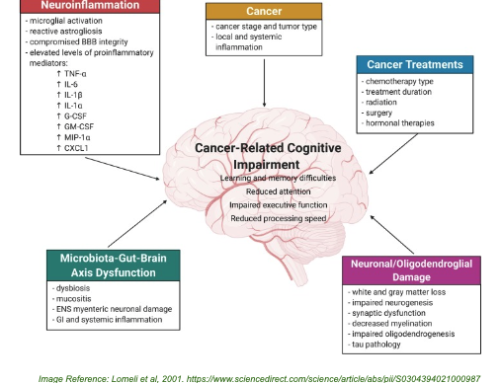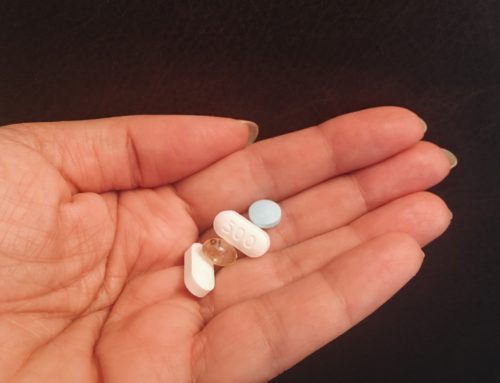Historically, Australia’s approach to improving health care for cancer patients focused on an aggressive approach to combating the disease and managing its symptoms. Comparatively little attention has been given to identifying the level of supportive care needed by patients or their carers.
However, while 144,713 new Australian cancer cases were diagnosed in 2019, the chances of surviving for five years following treatment now sits at 69 per cent. This poses the question, ‘Are we currently meeting the healthcare support needs of cancer patients and their carers?’
More Than A Diagnosis
Cancer is a varied collection of diseases numbering in the hundreds. These diseases trigger abnormalities in some of the body’s cells and these affected cells start multiplying out of control.
While delivering exceptional oncology care typically involves extensive communication between doctor, patient and the patient’s carer, comparatively little is understood about how patients and their carers perceive this communication process or what their preferences are for the content of those communications.
Identifying Unmet Needs
One study exploring the state of oncology inter-communications found 58.1% of cancer patients and 69.8% of their parents reported “a lot” of discussion about the physical impact of their treatment compared with only 44.2% of patients and 55.8% of parents reporting quality of life discussions. Both patients (31.8%) and parents (43.4%) reported low incidences of discussions on the emotional impact of their treatment. Moreover, one-fifth of patients reported they had zero up-front discussion about the emotional impact of cancer treatment.
A systematic review of 50 studies on unmet care needs identified twelve major unmet need areas in patients with advanced cancer. A further seven areas were similarly highlighted among informal caregivers.
The three most commonly reported unmet care areas for patients centred on the psychological, physical, and healthcare service and information. The most significant unmet care area proved to be emotional support (84.4%), fatigue (76.3%), and “being informed about the benefits and side-effects of treatment” (66.7%).
These findings suggest that patients and caregivers are looking for significant additional content and greater depth of communications on the part of health professionals and support services through to allied health providers and public health institutions.
For caregivers, the most commonly mentioned unmet communication needs related to information content. One hundred per cent of those carers participating in the various studies nominated the need for additional information on the nature of the illness, the particular cancer treatment required together with more care-related information.
Indigenous Cancer Patients Struggle to Close the Care Gap
https://www.youtube.com/watch?v=sFIjuw7frPM
Despite growing success in treating different forms of cancer, the disease remains the second biggest killer of indigenous Australians. Mortality rates are more than three times higher amongst indigenous people than for their non-indigenous contemporaries for some cancers.
In-depth interviews conducted between 2009 and 2010 with indigenous cancer patients, their carers and health professionals identified recurring patterns, where six frameworks emerged.
While no participants dismissed the importance of cultural identity to Aboriginal people, their use of familiar frameworks to describe what that means for cancer care services potentially excludes indigenous Australian voices. These patients already feel disenfranchised from Australia’s mainstream public health and allied healthcare system and its support services.
Closing this narrative gap could greatly help to close the distance in our understanding of the care needs of indigenous cancer sufferers and our response to those needs.
Returning to Work After Cancer
Work contributes to your overall health as it helps to preserve a patient’s sense of identity and purpose as well as generating an income. Work is a source of social interaction and gives a sense of normality that can be easily lost in the all-consuming battle with cancer.
However, Australia lacks support structures for people returning to work after their cancer treatment and doesn’t provide advice to employers on how to help them.
A 2016 Australian study into 255 cancer patients found 67% changed jobs after cancer and 63% found their income had dropped since their diagnosis. Patients undergoing cancer treatment often experience fatigue and nausea together with emotional issues and the practicality of fitting in medical appointments around work duties.

Recovery Strategies For Communicating With Family And Friends
After a patient’s treatment is complete their family and friends often expect them to rebound and be the same person they were before their cancer diagnosis. However, for many cancer patients, their priorities and perspective have changed, leaving some people close to them to discover they are unexpectedly feeling frustrated, disappointed, worried or confused.
Naturally, every patient’s family and friends want the turbulence and stress that comes with a cancer diagnosis to be put behind them. Comparatively few resources are typically allocated to coping with these typically tumultuous reactions and confusing emotions.
Coaching and advice by public and allied health services on alternative approaches to handling these situations by talking constructively with them about how they are feeling. One strategy is to share with them how any post-cancer recovery is inevitably ongoing. This process can require time to adjust and reflect on what each patient has experienced.
Importance Of Returning To Work
Although it may not feel like it, studies show work is a positive factor in our health. Being at work can provide a clear sense of purpose in patients’ lives. Work helps provide the lifestyle of our choice and encourages our happiness.
Being unable to work due to either cancer or the effects of its treatment can be emotionally corrosive. Not only does it weigh down a patient’s earning ability but it can undermine their self-esteem, their confidence and their sense of identity.
A patient’s recovery services should include a return to work component agreed upon by employee, employer and the patient’s oncologist.

Moving Forward
Many people with cancer discover they continue need support after their health care treatment concludes. The availability of support services often varies depending on geography. Successful cancer treatments can carry implications, which affect all aspects of a patient’s health and wellness, including mental as well as physical issues. Surviving cancer brings with it fresh challenges, from reflecting on the cancer experience and assessing life goals to dealing with the expectation of family and friends. One may also discover their limitations to return to work or resume one’s previous role. Dealing with these challenges benefit from the availability of recovery care models.
Both cancer patients and their caregivers reported a wide range of unmet support needs. As Australia’s success rate in cancer treatment rises, the next challenge for our health professionals, and health care system is how to close both the communication and content gaps. Special attention should be placed on devising ways of assisting patients in the workplace and fielding more nuanced approaches to Indigenous cancer care.
If you would like to find out more about our cancer support program, please contact us at: [email protected].



